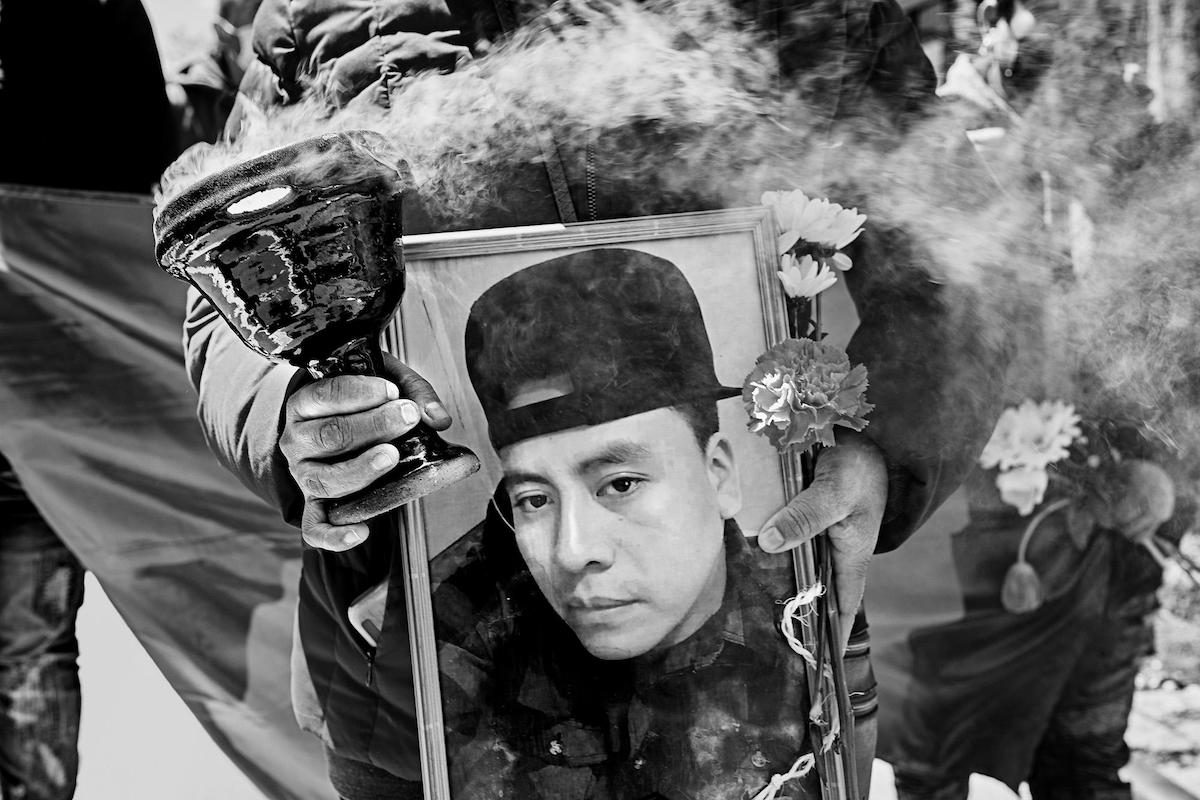

On March 29, 2021, Francisco Villalba Vitinio, a young Nahua Indigenous man born in Xalpatláhuac, México, was murdered in New York. He was shot by a group who was trying to rob the E-bike he used to deliver food. A family member carries his photograph during a protest in the Bronx. (Photo: Edu Ponces/Ruido Photo)
In the summer of 2020, Corona, Queens was the epicenter neighborhood of the epicenter city of the global coronavirus pandemic.
One of the many infectious nodes of the sprawling ground zero was a multi-family home of migrants known as “La Casita de Corona.” Three-dozen people crammed inside that house, vying for kitchen space, bathroom access, and a spot to drop a mattress.
El Faro’s Óscar Martínez —along with jack-of-all-trades activist and community icon, Father Fabían Aria— visited the packed home earlier this year to attend a double Mass: a father and a son had both died of COVID-19.
From that vantage point, Martínez, El Faro’s editor-in-chief and award-winning author of The Beast and The Hollywood Kid, chronicled the hardships of New York migrant neighborhoods amid a public health crisis that left behind the city’s most downtrodden.
“One of the catchphrases of the pandemic,” Martínez writes, “was to ‘maintain social distance.’ ‘To stay home’ was another. Here in Corona, migrants had little choice but to defy such slogans.”
The inability to quarantine or take even basic precautions for social distancing led to the infection of every single individual in La Casita de Corona. It also led to the death of both father and son.
Government neglect, overcrowded housing, and the need to leave home for work all converged to accelerate the spread of the virus in the neighborhood.
Now, as the area and its families mourn, and even as the pandemic again grips much of the United States and the world, Corona, Queens has reached that most severe-sounding of statuses: herd immunity.
But the neighborhood —and many undocumented communities throughout the New York megalopolis— suffers from a new sort of pandemic: Poverty, grief, and unending uncertainty.
“We’ll lift ourselves up,” Natalia Méndez, one of the founders of La Morada, a migrant-run kitchen feeding migrants in The Bronx during the pandemic, told Martínez. Méndez, one of the fortunate survivors, tends to the most primal need of the city’s most vulnerable: hunger.
“Does all of this scare us? Yes, but we come from where we come from. We come from cold, we come from hunger, we come from hard work and pain. That’s where we come from.”
Thanks for your time. Read the full dispatch from New York City, and please share.


